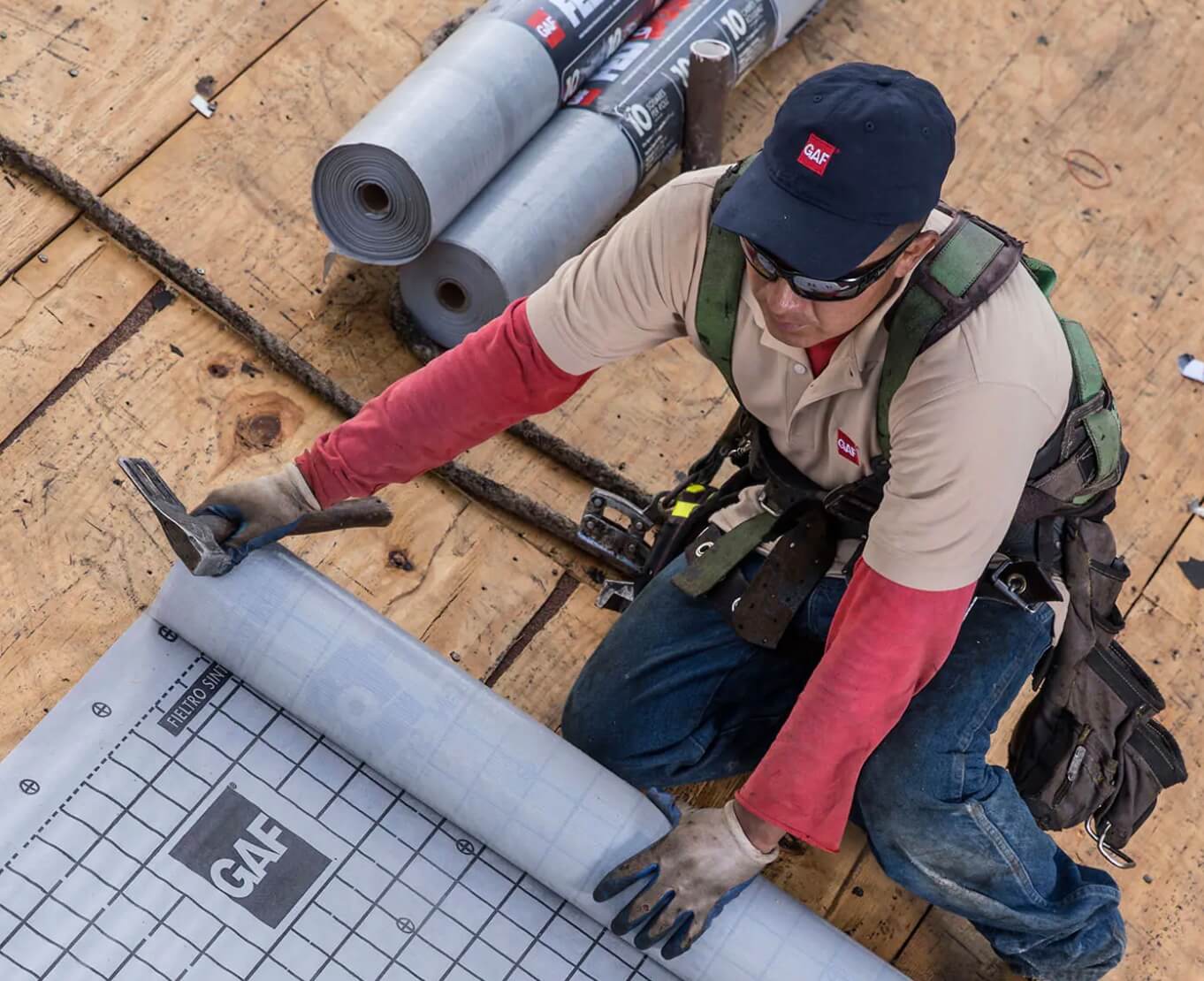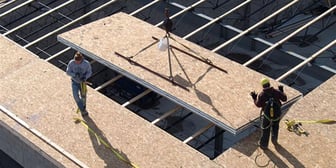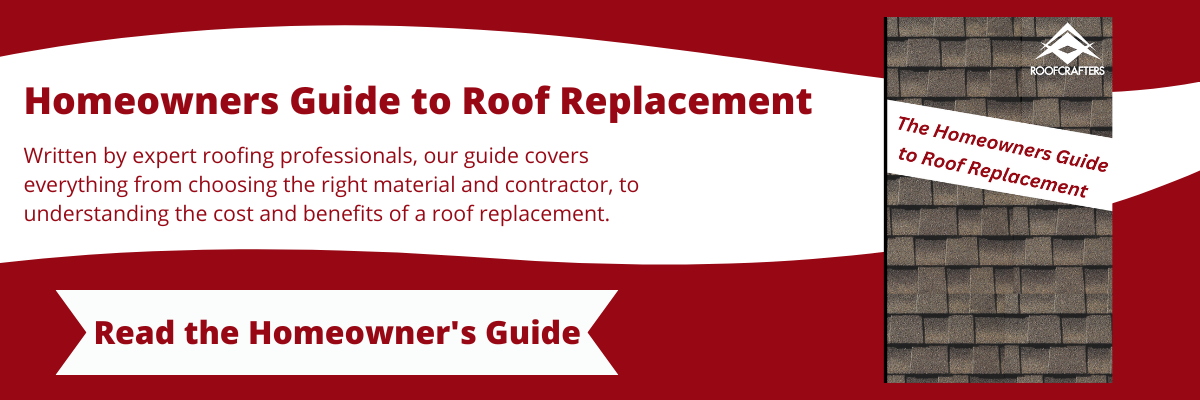OSB vs. Plywood Decking: Making the Right Choice for Your Property
August , 2023 | 6 min. read
By Kevin Mills

Decisions, decisions. When it comes to roofing, the materials you choose can significantly impact the structural integrity, longevity, and performance of your home or business. Oriented Strand Board (OSB) and plywood are two common choices for roof sheathing, each with its own set of characteristics and benefits.
Landing here must be meant to be because RoofCrafters has been a name in the industry for nearly thirty years. We know that the choices you make directly impact how well your roof fits your property, and every detail matters when making a final decision, even when it comes to something as simple as wood.
In this article, we'll delve into the differences between OSB and plywood roofing, guiding homeowners and business owners in making an informed decision that aligns with their specific needs and preferences. By the time you finish reading, you'll be better able to pinpoint which is right for you, bringing you one step closer to the roof you've always wanted! Let's get started.
Understanding OSB Decking
Oriented Strand Board (OSB) is an engineered wood made from thin wood strands or flakes bonded together with adhesive resins. OSB panels are created by layering these strands in specific orientations, resulting in a strong and durable panel. Here's a closer look at the pros and cons of it:
Pros:
- Cost-Effective: OSB is often more budget-friendly than plywood, making it an attractive option for cost-conscious homeowners and business owners.
- Sustainability: OSB is made from fast-growing and renewable wood sources, contributing to its eco-friendliness.

- Structural Strength: OSB panels are known for their dimensional stability and uniform strength, making them suitable for various roofing applications.
- Moisture Resistance: Modern OSB panels are treated to resist moisture absorption, reducing the risk of warping and swelling.
Cons:
- Moisture Sensitivity: Despite treatment, OSB can still be susceptible to moisture damage if exposed to prolonged wet conditions.
- Expansion and Contraction: OSB's expansion and contraction rates can be higher than plywood, potentially leading to slight movements in the roof structure over time.

- Limited Aesthetic Appeal: OSB has a distinctive appearance that may not be as visually appealing as other roofing materials.
As you can see, this option boasts a few stand-out benefits, such as lower cost and sustainability. However, they do lack aesthetic appeal and are more sensitive to moisture. If you live in a wet climate, be more cautious when deciding on OSB.
Plywood Decking: Does it Compare?
Plywood is a traditional roofing material made from thin layers of wood veneers glued together with alternating grain directions. This construction technique gives plywood its strength and stability. Let's examine the pros and cons of this option:
Pros:
- Durability: Plywood is renowned for its strength and ability to resist impacts, making it a reliable choice for withstanding heavy loads.
- Moisture Resistance: Plywood's composition and adhesive bonding enhance its resistance to moisture and delamination, ensuring long-lasting performance.

- Stability: Plywood has a lower expansion and contraction rate compared to OSB, contributing to a more stable roofing structure over time.
- Aesthetic Appeal: The smooth and consistent surface of plywood can be more visually appealing, especially when left exposed in areas like attics or under eaves.
Cons:
- Cost: Plywood typically comes with a higher price tag compared to OSB, potentially impacting the overall project budget.
- Limited Sustainability: The production of plywood involves harvesting more giant trees, which may raise concerns for those focused on sustainable building practices.

- Weight: Plywood is generally heavier than OSB, which could necessitate additional structural support during installation.
The choice between OSB and plywood decking depends on your specific requirements and priorities. For homeowners seeking a budget-friendly option with consistent structural strength, OSB could be a suitable choice. On the other hand, if durability, moisture resistance, and a more appealing appearance are paramount, plywood might be the better option.
Note: Factors such as climate, building codes, and design preferences should also influence your decision. If you live in an area with high humidity or frequent rain, the moisture resistance of plywood might be a crucial consideration.
Which is Right for You?
Selecting the appropriate roofing material is a critical decision that affects the long-term performance and aesthetics of your roof! Both OSB and plywood offer unique advantages and challenges, making it essential to assess your specific needs and priorities. Consulting with a professional contractor who understands local building codes and conditions can provide valuable insights to guide your decision.
Whether you choose the cost-effectiveness of OSB or the durability of plywood, remember that proper installation and maintenance play a significant role in the success of your roofing project. With careful consideration and professional guidance, you can ensure that your roof not only safeguards your property but also contributes to its overall aesthetic appeal and value!
Ready to chat with an expert? We're more than thrilled to assist you. And while you're at it, feel free to check out our comprehensive roofer checklist to help you decide how to find an excellent roofer for your project. At RoofCrafters, we take pride in offering anyone who chooses us optimal service and a caring set of hands. If you want to get in touch with one of our friendly representatives, make your way over to our contact page.
My name is Kevin Mills, and I am the lead estimator for RoofCrafters’ Tampa division. I’m originally from Michigan, and I enjoy hunting, fishing, and spending any free time outdoors. What I’m most passionate about, though, is helping business owners and homeowners alike achieve their roofing goals, all while providing a seamless customer journey.





